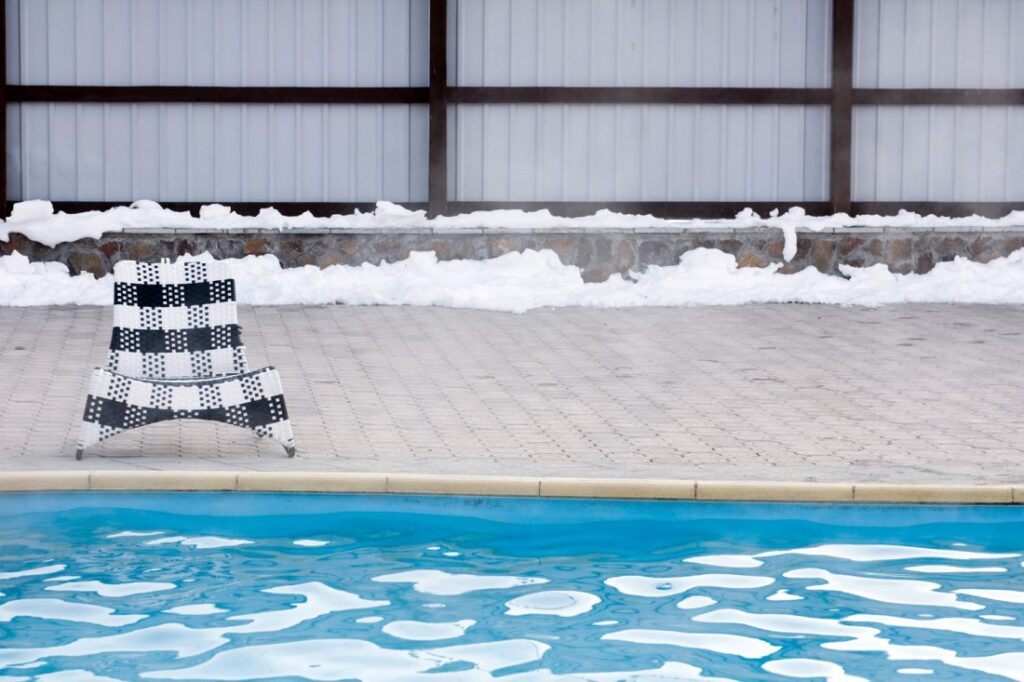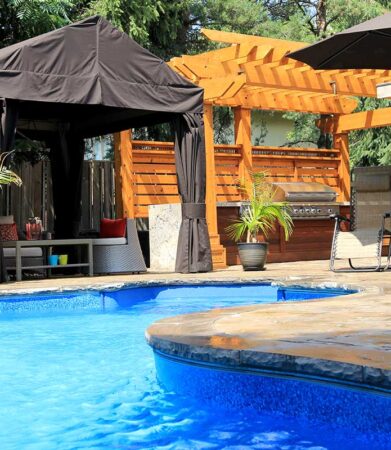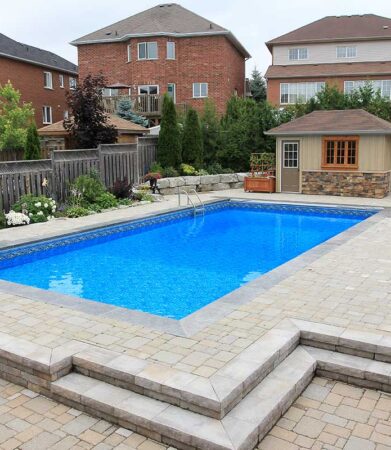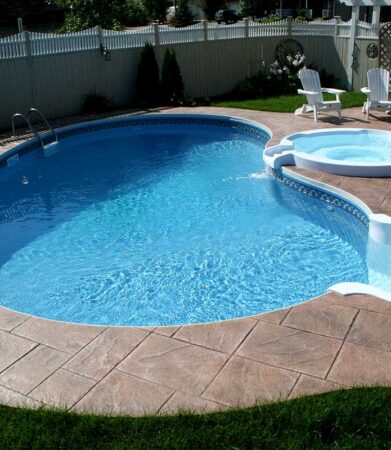
Although it may not be so bad at the moment, it looks like we’re in the midst of a long, cold winter here in Toronto and the GTA.
Even if you’re keeping yourself warm with thoughts of lazing by the pool on a hot, sunny day next summer, you’re still at least a few months from opening the pool. So, while we’re in the off-season, we thought we’d take a moment to answer one of the most common questions we get about inground pools and winter.
“Why do I have to leave water in my pool?”
First of all, just to confirm, yes, you must leave water in your inground pool throughout the winter.
To get straight to the answer of why that’s so, it’s because you don’t want your pool to ‘float’.
Forgive us if that sounds a little confusing, but that’s exactly what can happen if your drain some or, even worse, all the water from your pool.
Hopefully the following explanation will help it all make sense. The water in your pool isn’t the only water in your yard. In fact, there’s ground water throughout your yard. Depending on the landscape of your yard and the type of soil in it, you could have more or less ground water.
Like any other standing water, that ground water exerts ‘hydrostatic pressure’ on everything around it. If you’ve had a leak in your basement, it’s likely the result of hydrostatic pressure against the foundations of your house (though it could also be a leaky roof!).
When water (hydro) is at rest (static) – see where we’re going here?! – it exerts pressure all around it, including downwards, sideways and upwards. In the case of a leaky basement, when enough water accumulates outside your foundation walls, the pressure exerted against the walls by the water is too much for the walls to block and the water is forced into your basement by the pressure.
The hydrostatic pressure in the groundwater around your pool constantly pushes against the sides and bottom of the pool. When you leave water in the pool, the hydrostatic pressure of the pool water counteracts the pressure of the groundwater.
But if there’s no water in your pool, there’s nothing to counteract the groundwater pressure, which could literally make a concrete pool float. Unfortunately, your pool isn’t made to float and the upward and sideways pressure against the walls of your pool can cause cracks a groundwater leak into your pool. If your pool has a vinyl liner, groundwater pressure can make it bubble and float inside the pool.
So, now you know why you need to keep water in your pool year-round!




